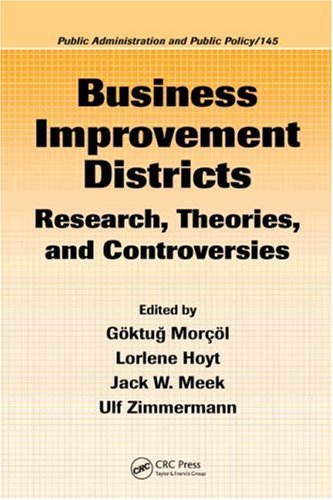

Most ebook files are in PDF format, so you can easily read them using various software such as Foxit Reader or directly on the Google Chrome browser.
Some ebook files are released by publishers in other formats such as .awz, .mobi, .epub, .fb2, etc. You may need to install specific software to read these formats on mobile/PC, such as Calibre.
Please read the tutorial at this link: https://ebookbell.com/faq
We offer FREE conversion to the popular formats you request; however, this may take some time. Therefore, right after payment, please email us, and we will try to provide the service as quickly as possible.
For some exceptional file formats or broken links (if any), please refrain from opening any disputes. Instead, email us first, and we will try to assist within a maximum of 6 hours.
EbookBell Team

4.3
38 reviewsInitiated and governed by property or business owners under the authorization of state and local governments, business improvement districts (BIDs) have received a very mixed reception. To some, they are innovative examples of self-governance and public-private partnerships; to others, they are yet another example of the movement toward the privatization of what should be inherent government responsibilities.
Presenting the first collection of scholarly work on the subject, Business Improvement Districts: Research, Theories, and Controversies brings together renowned leaders in the field to compile the highest-quality theoretical, legal, and empirical studies into one comprehensive volume. Investigating fundamental concerns at the core of the debate, as well as potential solutions, this groundbreaking resource—
Examines Case Studies of BIDs in Action
From different perspectives, leading practitioners and academics analyze the pros and cons of BIDs both in the United States and around the world. They look at their impact on urban planning and retail revitalization, consider their legal implications, and explore ways to measure BID performance. Filled with case studies of urban centers including San Diego, Atlanta, New York, Toronto, and Capetown, and state models such as New Jersey and Pennsylvania, this examination bring together essential information for researchers as well as those leaders and policy makers looking to adopt a BID model or improve one already in place.